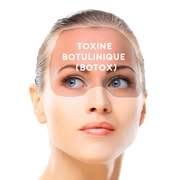 By: Shannon Keane, NP-C Botulinum toxin type A (BTX-A), also known as onabotulinumtoxinA or Botox®, is commonly known for its aesthetic use in treating glabellar frown lines. Recent evidence suggests that Botox® injections may have beneficial psychological effects. A dermatologist published the first set of case series in 2006, reporting the potential role of Botox® in the treatment of depression. The research results revealed that Botox® injections were correlated with a significant improvement in depressive symptoms when compared with placebo. The potential mechanisms behind this correlation has not yet been proven, but many have proposed possible ideas of why Botox® may help ease depressive symptoms. The most common theory is the facial feedback hypothesis. This hypothesis, originated by Darwin in 1872, stated that one’s facial expression may directly affect their emotional state of mind. There are 42 individual facial muscles in a human being. Current evidence suggests that the corrugator muscle is activated in the forehead when one tends to be experiencing negative emotions. The corrugator muscle is located beneath the eye brows. One study found that depressed people tend to have overactive facial muscles when compared to the facial muscle movement of non-depressed people. Botox® injections into the corrugator muscle limits movement in that muscle, therefore minimizing the ability to frown or make a negative facial expression. This action may block typical sensory feedback from the nerves, particularly to the left amygdala to the brain. Research has demonstrated that over-activation of the amygdala is associated with negative emotions. Negative emotions may include: anger, depression, anxiety and fear. Botox® seems to actually reduce the activation of the amygdala by blocking the release of the neurotransmitter, acetylcholine. This results in a positive effect on mood. Another published study proposes that Botox® may produce antidepressant effects due to systemic distribution after injection. It’s important to note that the content of circulating Botox® is actually very low post- injection. Botox® might be a great option for you if you are opposed to taking a daily medication, or feel that you have tried many different anti-depressants, and have not yet seen improvement in your depressive symptoms. Botox® is a great alternative treatment option for many people suffering from depression. Ask your provider at Bloom about it at your next appointment to see if you are a good candidate!
0 Comments
Leave a Reply. |
about the authorSJadon Webb, M.D., Ph.D.
Owner Bloom Mental Health Shannon Keane,
MSN, FNP-C, PMHNP-BC Clinical Director Disclaimer: this blog is NOT intended as medical advice and does not imply any kind of specific guidance or treatment recommendations, and should NOT be used to guide a treatment protocol. (read full disclaimer)
Afton Williamson,
DNP, MSN, FNP-BC Family Nurse Practitioner |
Location |
|



